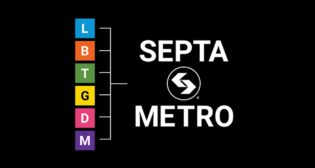
Metro Board of Directors Approves WMATA’s $4.8B FY24 Budget
Written by Carolina Worrell, Senior Editor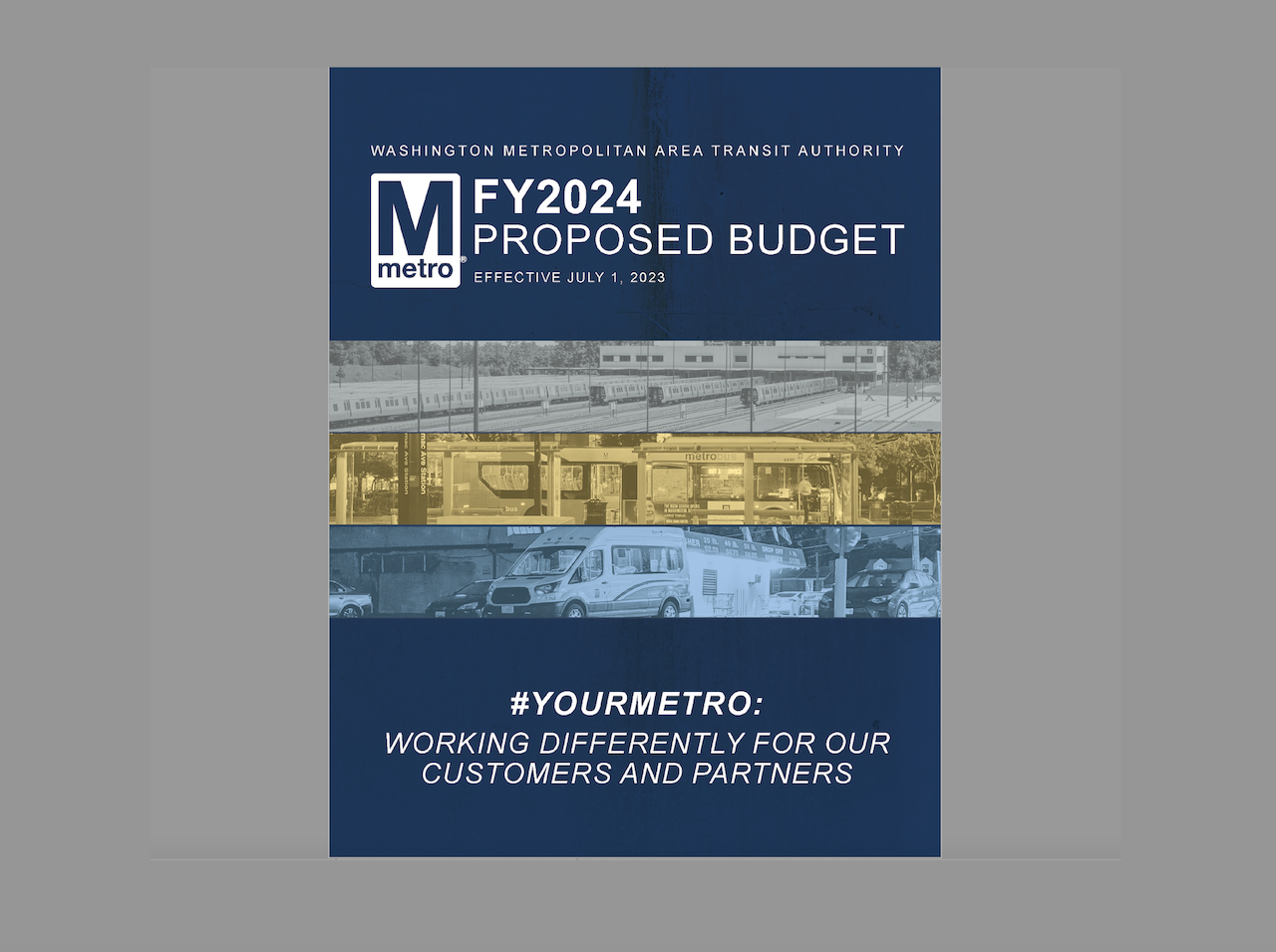
The Metro Board of Directors on April 14 approved the Washington Metropolitan Area Transit Authority’s (WMATA) $4.8 billion capital and operating budget for fiscal year (FY) 2024, which supports the agency’s “increased rail and bus services, simplifies fares for customers, creates a new low-income fare program, caps MetroAccess fares at $4, and enhances safety measures.”
According to WMATA, the $2.4 billion capital budget allocates funds to invest in infrastructure projects and sustainability, including the advancement of the agency’s new 8000-series railcars, technology upgrades to support next generation train systems, and development of Blue, Orange and Silver rail line corridor improvements.
WMATA’s Capital Improvement Program (CIP), the agency says, is designed to “improve the safety of Metro’s rail, bus and paratransit system, keep the region’s infrastructure in a state of good repair, and enhance the customer experience.” Investments are organized into the following six categories:
- Railcar and Railcar Facilities.
- Rail Systems.
- Track and Structures Rehabilitation.
- Stations and Passenger Facilities.
- Bus, Bus Facilities and Paratransit.
- Business and Operations Support.
Railcar and Railcar Facilities
In FY23, WMATA says it is planning to invest $303 million in railcars and associated facilities. These investments are organized into the following three subcategories:
- Railcar acquisition, including future 8000-series trains built by Hitachi, which will open an assembly plant at Hagerstown, Md., “creating local jobs and return the agency’s investment to the local economy.”
- Maintenance and overhaul work, including preventive maintenance work to “keep the fleet safe and reliable for customers.”
- Facility upgrades and improvements, including a new Metrorail Heavy Rail & Overhaul facility in Landover, Md., to provide “additional railcar maintenance capacity and accommodate the increase in demand for additional track maintenance and associated equipment.”
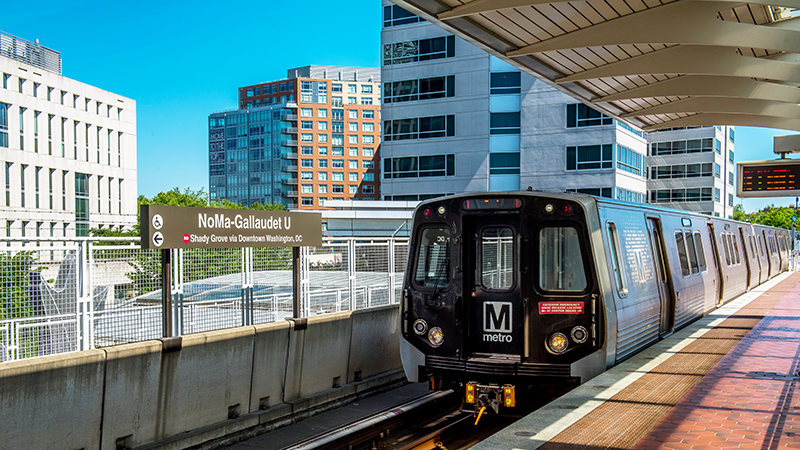
Rail Systems
In FY23, WMATA says it is planning to invest $203 million in rail systems. These investments are organized into the following two subcategories:
- Signals and communications, including a project that has added cellular service to all 100 miles of the agency’s underground tunnels and will also result in a new radio system.
- Propulsion system maintenance and upgrades, including reliability improvements for the electrical system that powers the Metrorail system.
Featured projects include the Underground Cellular and Radio Project and the Alexandria Rail Yard Signal Upgrades, which consisted of modernizing the signal system in the Alexandria Rail Yard, improving safety, reliability and on-time performance. During construction, all major components of the signal system were replaced, including switches, signals, track circuits and signal control rooms.
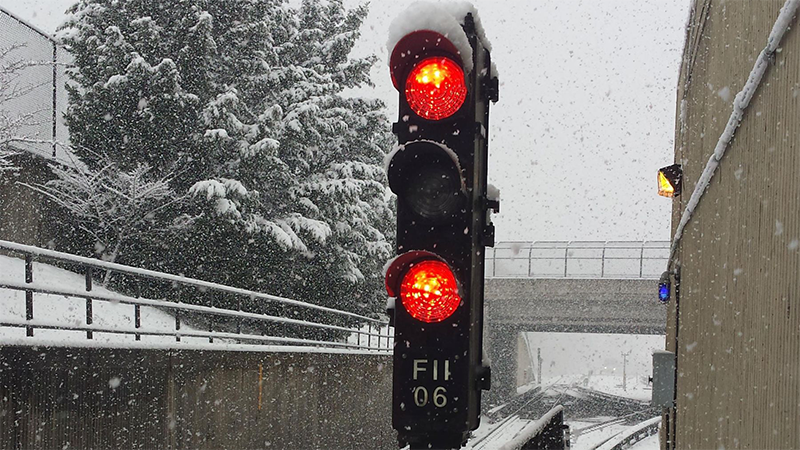
Track and Structures Rehabilitation
In FY23, WMATA says it is planning to invest $459 million in track and structures. These investments are organized into two subcategories, detailed below:
- Track Infrastructure: These investments maintain and improve the tracks by replacing deteriorated rail ties, steel rail and other rail components; stabilizing and tamping the track to ensure track alignment; and improving the electrical and signal conductivity of running rail.
- Structures: Programs include efforts to prevent water leaks in the underground tunnels from deteriorating the rail and electrical system, tunnel ventilation improvements, and rehabilitation to aerial structures and bridges.
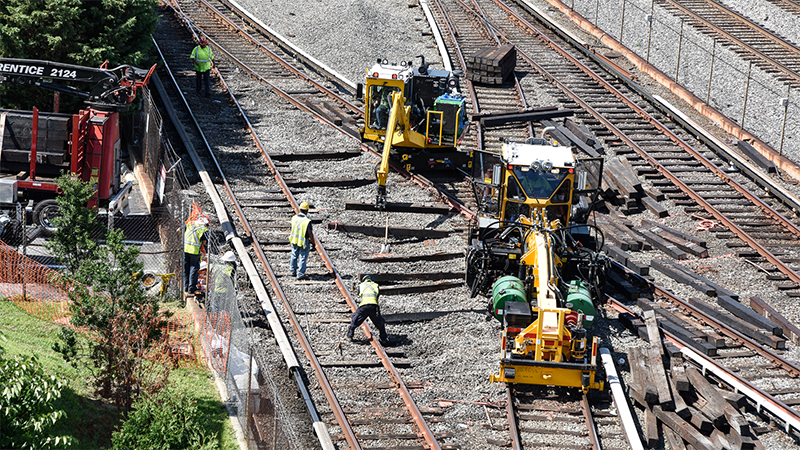
Stations and Passenger Facilities
In FY23, WMATA says it is planning to invest $525 million in stations and passenger facilities. These investments are organized into the following three subcategories:
- Platforms and structures, including the multi-year Platform Improvement Project to rebuild deteriorating platforms at 20 outdoor stations and introduce new customer experience improvements.
- Vertical transportation, including rehabilitation, replacement, and scheduled maintenance of Metro’s 617 escalators and 322 elevators.
- Station systems, including lighting, station cooling systems, drainage pumping stations and fire/life safety infrastructure
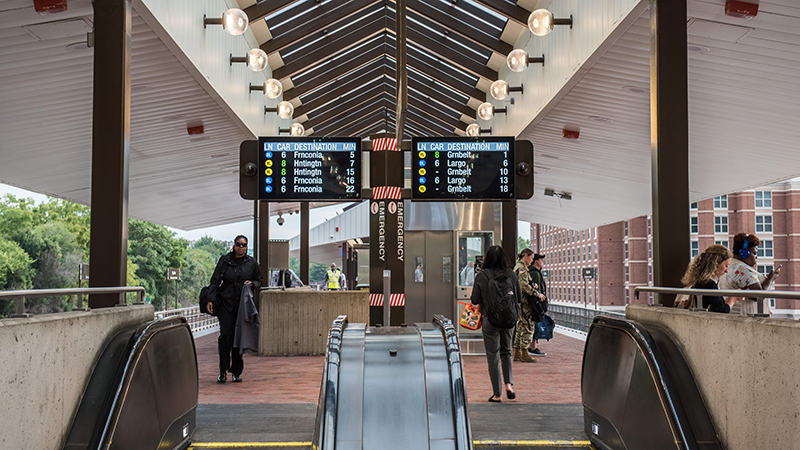
Business and Operations Support
In FY23, WMATA says it is planning to invest $379 million in business support. These investments are organized into the following three subcategories:
- Support equipment and services, including Metro’s office consolidation and installation of new digital displays at high-traffic stations, among other projects.
- Information technology, including projects that improve internal operations and the overall customer experience.
- Metro Transit Police Department facilities and projects, including construction of a District III substation to offer faster response times across the transit system.
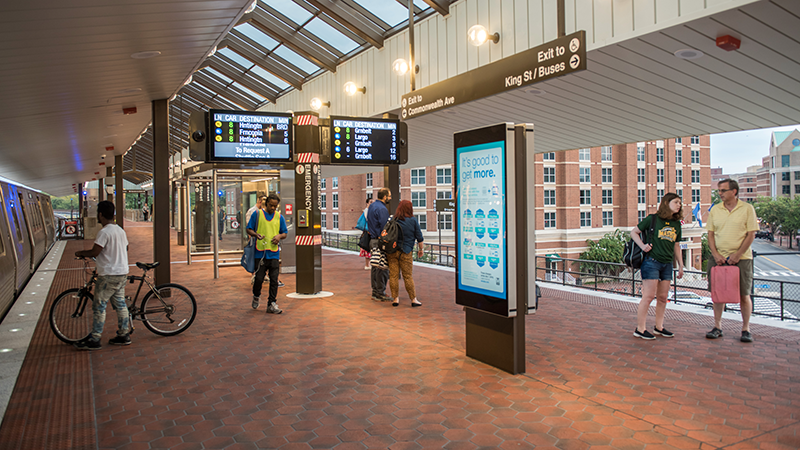
The approved budget is “a major step forward in providing customers with a better rail and bus network,” WMATA said. Once fully implemented, 75% of rail customer trips will have service every six minutes or better.
According to WMATA, Green and Yellow line trains will arrive every six minutes all day. This budget, the agency adds, delivers the highest number of trains in WMATA’s history on the Southern Green Line. Yellow Line trains will operate between Huntington and Mount Vernon Square only. The Yellow Line turnback starts on May 7, 2023, with the reopening of the Yellow Line Bridge. In addition, Orange Line trains will operate every 7.5 minutes on average during peak service and every 10 minutes during off-peak service. Printed system maps representing the new changes will be gradually rolled out in the coming months and posted in stations to reflect the Yellow Line service change and new Potomac Yard station. Updates on digital signage will immediately be reflected.
According to WMATA, the implementation of new simplified fares for rail and paratransit customers allows transit “to be more affordable for most of Metro’s customers and aims to increase ridership and revenue.” For the first time, MetroAccess fare will be capped at $4.
Customers who travel the longest distance will experience maximum Metrorail fares at $6 on weekdays and $2 on late nights and weekends, which will eliminate weekday peak and off-peak fares. WMATA says it will also launch a first-time region-wide low fare program that offers customers enrolled in the Supplemental Nutrition Assistance Program (SNAP) a 50% discount on trips.
In addition, the Board of Directors proposed an amendment to the FY24 budget, which it says will waive the $2 fee for Senior SmarTrip cards after WMATA staff conducts a Title VI equity analysis and public participation and the Board of Directors approves the report. If approved, it will eliminate the $2 fee assessed for a card.
While Metrorail service changes approved in the FY24 budget are expected to be implemented during the summer and fall 2023 as more railcars and operators become available, the agency says Metrobus changes, simplified fares and WMATA’s first low-income fare programs are scheduled to take effect on or about July 1, 2023.
Additionally, WMATA says it continues to support enhanced safety measures and operation initiatives.
Metropolitan Transit Police Department (MTPD) recently began deploying body-worn cameras to officers to provide more openness and transparency for WMATA customers, as well as collaborating with local law enforcement jurisdictions to increase visibility throughout the authority.
The budget, WMATA says, includes the addition of Crisis Intervention Specialists and funds the creation of the Metro Integrated Communications Center, a “one-stop-shop to improve communication and coordination among operations,” that the agency says will “consolidate Metro’s rail, bus, police, video, maintenance, power and elevator and escalator operations into a single location working side-by-side in real time to enhance the customer experience throughout the system.”
“The FY 2024 budget focuses on optimizing Metro services while continuing to invest in long term infrastructure and sustainability projects,” said Metro General Manger and CEO Randy Clarke. “With this budget, we are proud to invest in more frequent rail and bus service and a better customer experience, maximizing the value we deliver to the region with available resources.”
“This budget represents Metro’s continued commitment to provide safe, reliable, affordable and sustainable service by creating a more simplified and equitable fare system, optimizing the frequency of Metrobus and Metrorail services and increasing public safety throughout the transit system,” said WMATA Board Chair Paul C. Smedberg. “And while this budget represents a big leap forward, Metro will continue looking for additional ways to be responsive to our customers’ and the region’s needs as the DMV continues to grow and evolve.”
WMATA’s Proposed FY2024 Annual Budget, as well as its FY2024 to FY2029 Capital Improvement Program & 10 Year Plan are available for download below.
